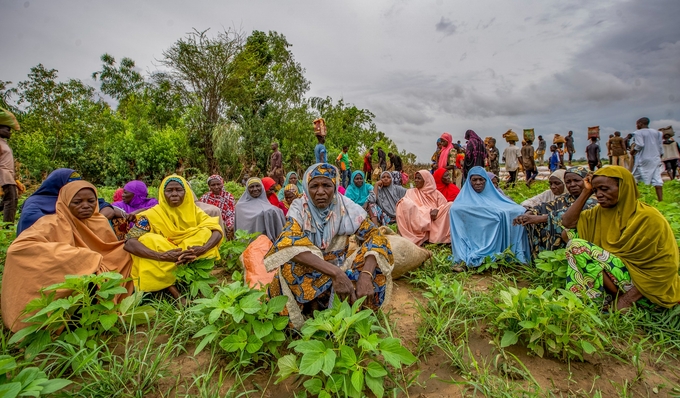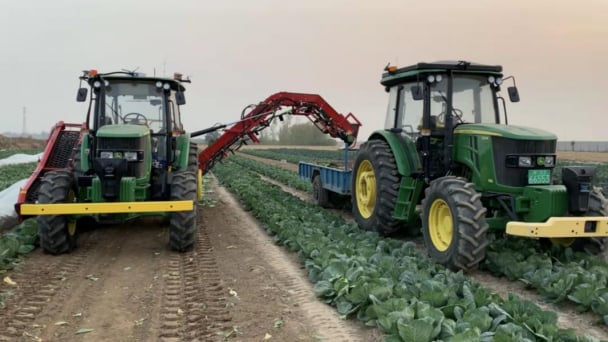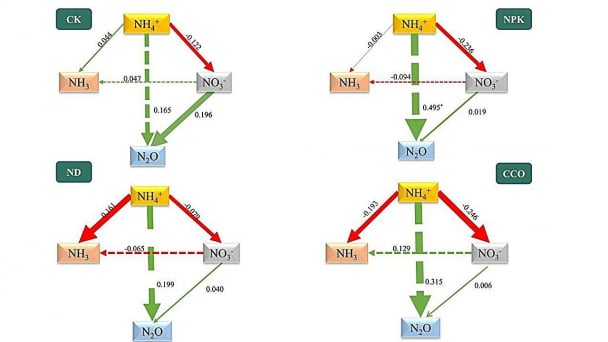June 30, 2025 | 13:41 GMT +7
June 30, 2025 | 13:41 GMT +7
Hotline: 0913.378.918
June 30, 2025 | 13:41 GMT +7
Hotline: 0913.378.918

For the first time in the Sahel, 45,000 people are forecast to experience catastrophic (phase 5) levels of hunger – one step away from famine.
Acute food insecurity is on track to reach a 10-year high in West and Central Africa by June of this year - a new study shows - with a worrying expansion of food insecurity into coastal countries, and catastrophic levels of hunger hitting conflict-affected areas of Burkina Faso and Mali where humanitarian assistance is severely hindered by insecurity.
For the first time in the Sahel, 45,000 people are forecast to experience catastrophic (phase 5) levels of hunger - one step away from famine - including 42,000 in Burkina and 2,500 in Mali.
The combined effects of conflict, climate shocks, COVID-19, and high food prices continue to drive up hunger and malnutrition in the region, with the number of people lacking regular access to safe and nutritious food projected to rise to 48 million during the June-August 2023 lean season according to the March 2023 Cadre Harmonisé food security analysis – a fourfold increase in the last five years. The results also confirm a longer-term trend towards a geographic expansion of food insecurity in the region.
“The spiralling food security and nutrition situation in Western Africa is just heart-breaking,” said Chris Nikoi, WFP’s Regional Director for Western Africa. “There is a crucial need for massive investment in strengthening the capacities of communities and individuals to withstand shocks while prioritizing local and long-term solutions to food production, transformation and access for vulnerable groups,” he added.
The already grim nutritional situation for communities across the region is also on the slide with 16.5 million children under 5 set to face acute malnutrition in 2023, including 4.8 million children set to suffer from the debilitating severe form (SAM). This is an 83 percent rise in global acute malnutrition (GAM) compared to the 2015-2022 average. In addition to the unaffordability of a diversified nutritious and healthy diet (especially for young children and women), conflict and population displacement are one of the primary drivers of the worsening situation, leading to reduced access to essential social services (health, nutrition, WASH, social protection) and negatively affecting care practices. Between 2019 and 2023, security incidents increased by 79 percent in the region causing massive population displacement and disrupting access to farming land and fodder.
“Growing insecurity and conflict means vulnerability is increasing in the region, and it is getting harder to help communities in isolated areas,” said UNICEF Regional Director for West and Central Africa, Marie-Pierre Poirier. “We are supporting governments to strengthen health systems at the facility and community level to successfully detect and treat malnutrition, while putting the focus on prevention.”
Despite improved rainfall in 2022, the access to and availability of food remain of major concern. The region remains net import dependent, and currency depreciation and high inflation are causing food import bills in the region to rise, even as countries struggle with major fiscal constraints and macroeconomic challenges. Furthermore, there are concerns that transhumance movement restrictions and high concentrations of livestock in some areas could lead to further deterioration in pastoral and security conditions.
“The continued deterioration of the food and nutrition situation in West Africa and the Sahel is unacceptable; despite the increase of cereal production, access to food for most of the population remains challenging due to the disrupted functioning of markets because of civil insecurity and high food prices” said, Robert Guei, FAO’s Sub-regional Coordinator for West Africa.
“This trend will probably continue to worsen the food and nutrition situation and therefore we must address the root causes of this crisis in a concerted manner and immediately. It is time for action to boost agricultural production to achieve food sovereignty in our region”, Guei added.
FAO, OCHA, UNICEF, and the United Nations World Food Programme (WFP) renew their call on development and humanitarian partners - as well as the private sector - to support national governments in strengthening food security and nutrition in the region. This includes building food, health, water, sanitation and hygiene systems, and nutrition-sensitive social protection programmes that target vulnerable groups such as women and young children. Partnerships need to be enhanced to prevent and treat acute malnutrition among children and promote climate-smart programmes that help to reduce the region's high vulnerability to climate shocks, and the risk of natural resource depletion.
“The food and nutrition crisis has a multi-sectoral impact on the living conditions of affected populations in the region, in areas already experiencing humanitarian crises and in all West and Central African countries. This requires the collective deployment of multisectoral approaches based on the needs expressed by the population putting west and Central Africa people at the center” added Charles Bernimolin - Head of OCHA regional office for West and Central Africa.
(FAO.org)

(VAN) Director-General QU Dongyu addresses the 6th AU-EU Agriculture Ministerial Conference.

(VAN) In the suburbs of Beijing, there is an agricultural center spanning over 150 hectares dedicated to research, demonstration, and application of high-tech and precision agriculture.

(VAN) Researchers from the Institute of Applied Ecology of the Chinese Academy of Sciences have developed a new environmentally friendly fertilizer additive that significantly enhances crop yields while reducing emissions of harmful gases.

(VAN) Poultry production in Poland, which has only started recovering from devastating bird flu outbreaks earlier this year, has been hit by a series of outbreaks of Newcastle disease, with the veterinary situation deteriorating rapidly.

(VAN) Extensive licensing requirements raise concerns about intellectual property theft.

(VAN) As of Friday, a salmonella outbreak linked to a California egg producer had sickened at least 79 people. Of the infected people, 21 hospitalizations were reported, U.S. health officials said.

(VAN) With the war ongoing, many Ukrainian farmers and rural farming families face limited access to their land due to mines and lack the financial resources to purchase needed agricultural inputs.